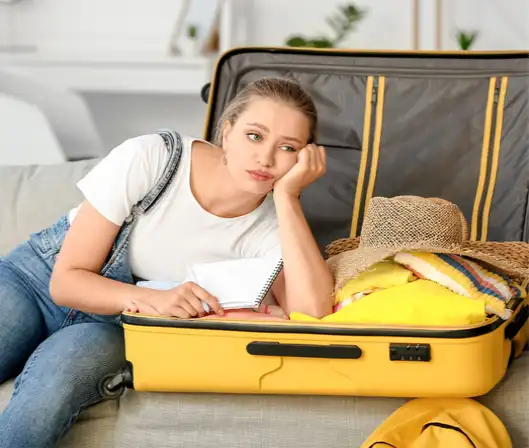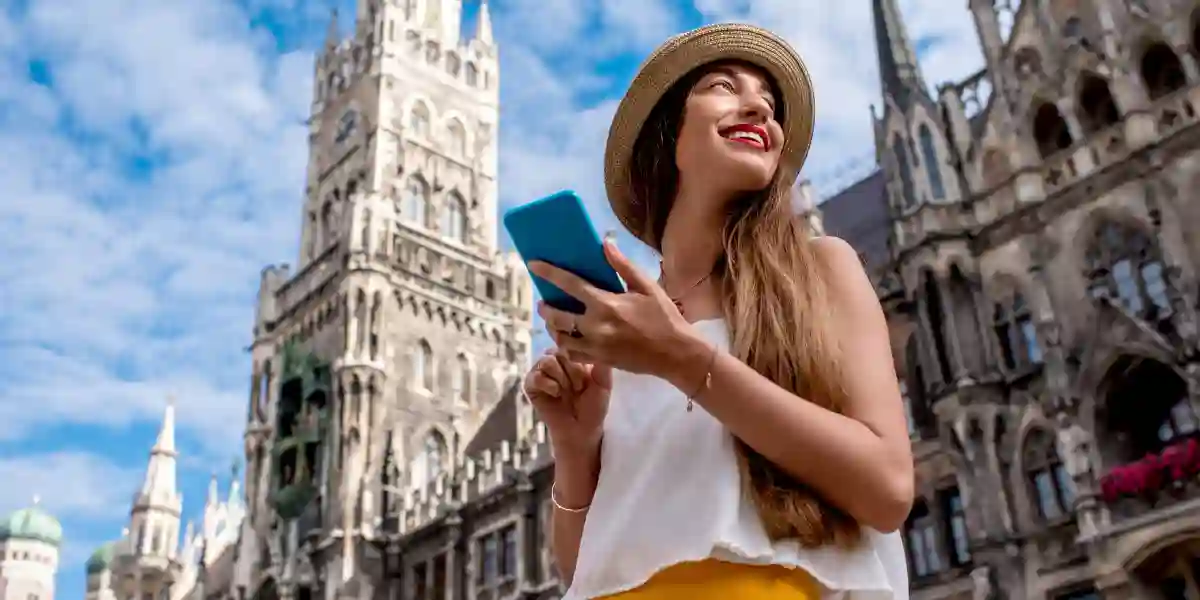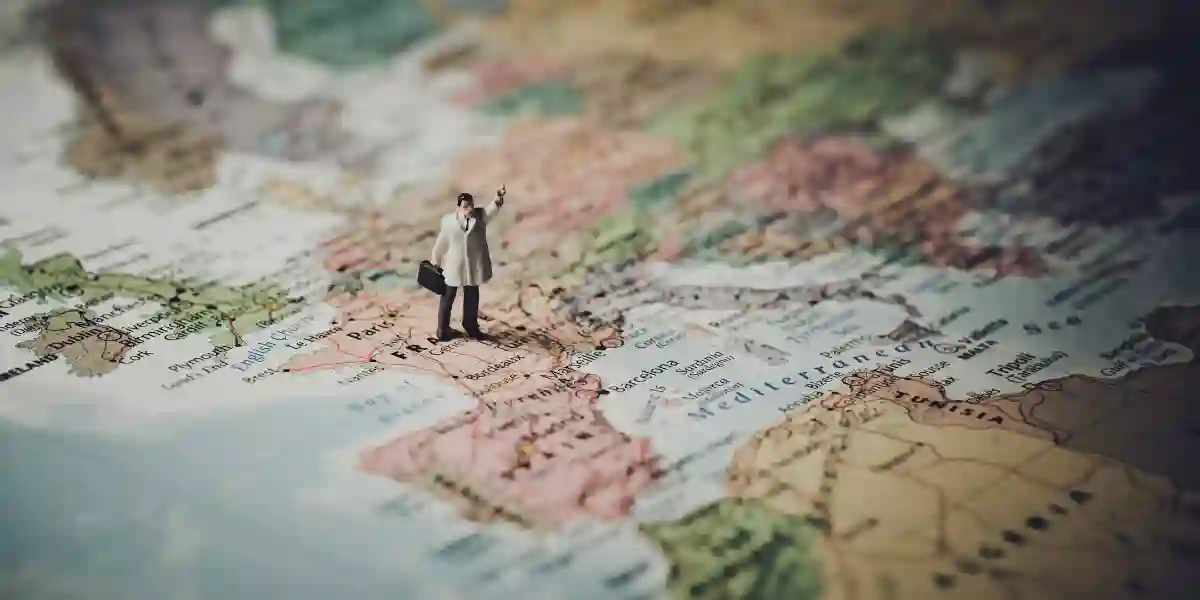


An introduction to Cultural Shock
What could be better than travelling? It’s everyone’s dream! But sometimes, joy turns to anxiety, sadness, or even depression. Why? Cultural shock – and its lesser-known cousin, culture aftershock. This blog will explore what they are, why they happen, and how to prepare for smoother, emotionally balanced travel adventures.
Culture shock consists of six stages, each with its own unique positives and challenges. Let’s take a closer look at each stage in detail.
1. Honeymoon Stage
- What it feels like: Excitement, curiosity, and fascination with the new culture.
- Common experiences: Everything feels new and interesting. People are often enthusiastic about trying new food, meeting new people, and exploring the environment.
- Why it happens: The differences are seen as charming or refreshing.

2. Frustration (or Negotiation) Stage
- What it feels like: Confusion, irritation, anxiety, or even anger.
- Common experiences: Language barriers, misunderstandings, and cultural differences can become stressful, and homesickness may kick in.
- Why it happens: The novelty wears off, and the challenges of everyday life in a different culture become more noticeable.
3. Adjustment Stage
- What it feels like: Increased comfort and confidence in navigating the new culture.
- Common experiences: You begin to understand social cues, improve in communication, and develop routines . Cultural differences become more manageable.
- Why it happens: You’ve started to adapt and develop coping strategies.
4. Adaptation (or Mastery) Stage
- What it feels like: Acceptance, belonging, and a new sense of normal.
- Common experiences: You feel “at home” in the new culture and are able to function effectively. Some even develop a bicultural identity.
- Why it happens: With time and experience, the new culture feels less foreign and more like a part of you.

5. Re-Entry Shock (Reverse Culture Shock)
🌀 What is it?
Re-entry shock happens when someone returns to their home country after spending a significant amount of time in a different culture. You might expect to feel “back to normal,” but instead, you feel disoriented, disconnected, or even disappointed.
What it feels like: Disorientation or frustration when returning to your home country.
Common experiences: Feeling out of place, surprised by how much has changed – or how much hasn’t.
Why it happens: You’ve grown or changed, and reintegrating can be unexpectedly difficult.

💭 Common Feelings:
- Alienation: You don’t feel fully understood by friends or family.
- Frustration: Things that used to feel normal now seem inefficient, shallow, or irritating.
- Nostalgia: Longing for the culture you just left – you might idealise it.
- Loneliness: Feeling like no one around you gets what you’ve just experienced.
🧠 Why it Happens:
- You’ve changed. Living in a different culture broadens your perspective – your habits, values, or identity may have shifted.
- Expectations are mismatched. You assume everything at home will be the same (including you), but things have changed – or haven’t changed – and that causes tension.
- Loss of community. The support systems or social circles you built abroad are gone, leaving a gap.
⚖️ Examples of Re-Entry Shock:
- A student returns from studying abroad and finds it hard to reconnect with old friends who haven’t had similar experiences.
- Someone returns after working overseas, shocked at the consumerism, pace, or attitudes back home.
- You miss food, customs, or even the language of the country you left.
🛠 How to Cope:
- Talk about it. Connect with others who’ve experienced reverse culture shock.
- Be patient. Adjustment takes time, again.
- Reflect and integrate. Journal or talk to a counsellor about what you’ve learned and how it fits into your current life.
- Stay connected globally. Keep relationships or habits from other cultures alive (e.g., cook their food, follow their news, speak the language).

Many people say re-entry shock can be harder than the initial culture shock, because you expect home to feel comfortable, and when it doesn’t, the surprise adds another layer of stress.
Ways counselling can help:
🧩 How Counselling Can Help with Culture Shock (and Re-entry Shock)
Normalise the experience: Counsellors can help you understand that what you’re going through is common and valid – you’re not alone or “overreacting.”
Process emotions: Whether it’s confusion, sadness, guilt, or frustration, counselling provides a safe space to unpack your feelings without judgment.
Reconnect with identity: Living in different cultures can shift how you see yourself. A counsellor can support you in exploring your evolving identity and values.
Build coping tools: You’ll learn practical strategies – from grounding techniques to cognitive reframing – to handle the emotional and social stress of adjusting.
Strengthen relationships: Counselling can help you communicate better with those around you who may not understand your experience, whether family, friends, or peers.
Make meaning: Counsellors can help you reflect on your journey, find purpose in your challenges, and integrate your experiences into who you’re becoming.
Travelling is meant to be enjoyable and filled with positive experiences. At Positive Mind Works, we’re committed to helping ensure your travel continues to bring joy to you and your family. With a deep understanding of human psychology and the impact of cultural immersion, we can tailor a therapeutic approach to help make your travel experiences enriching and memorable for all the right reasons.

Frequently Asked Questions:
What are the main stages of culture shock?
The six stages of culture shock include the honeymoon phase, frustration, adjustment, adaptation, re-entry shock, and cultural integration—each with its own emotional highs and lows.
Why is returning home after living abroad so difficult?
Many people experience reverse culture shock, or emotional jet lag, upon returning home. Expectations clash with reality, leading to feelings of alienation, frustration, and disorientation.
How does therapy help with cultural adjustment or emotional jet lag?
Therapy helps normalise the experience, build coping tools, reconnect with your identity, and process feelings of sadness, frustration, or isolation.
Is it normal to feel more comfortable abroad than at home?
Yes. After growing and adapting in another culture, it’s common to feel more aligned with your host culture—creating a sense of discomfort or disconnection back home.

